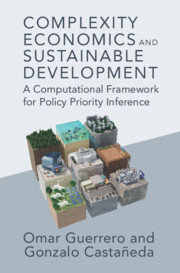
- Cited by 1
-
Cited byCrossref Citations
This Book has been cited by the following publications. This list is generated based on data provided by Crossref.
Morell, Jonathan A. 2025. Characteristics of sustainability: A complexity-based view to inform evaluation. Evaluation and Program Planning, Vol. 111, Issue. , p. 102561.
- Publisher:
- Cambridge University Press
- Online publication date:
- January 2024
- Print publication year:
- 2024
- Online ISBN:
- 9781009022910


